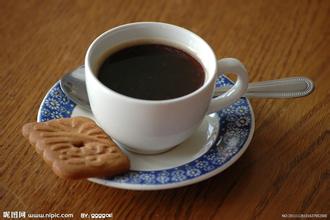Refreshing taste of Kenyan coffee flavor manor production area characteristics of boutique coffee beans
The Constitution of the Republic was promulgated in 1964 and has undergone 30 major and minor amendments as of September 2014. In June 1982, Kenya adopted a constitutional amendment to establish a one-party system. In December 1991, it changed to a multi-party system, stipulating that Kenya is a multi-party democratic country, and the President is the head of state, head of government and commander-in-chief of the armed forces, with a term of office of five years and no more than two consecutive terms; the elected President must obtain a majority of votes and obtain more than 25% of the votes in five of the country's eight provinces; the President has the highest executive power and the power to appoint and dismiss, and has the right to convene or dissolve Parliament; the President and Cabinet are collectively responsible to Parliament; Citizens enjoy freedom of religious belief, speech, assembly, association and movement. Since 1997, the Kenyan opposition party has strongly demanded a comprehensive constitutional amendment on the grounds that the constitution does not meet the requirements of the multi-party system. In September 1997, Kenya promulgated the draft Constitutional Amendment Commission Bill, which began to amend the Constitution. In February 2006, President Kibaki announced the establishment of a new Constitutional Commission to replace the former Constitutional Commission, whose term expired. Since February 29, 2008, the parties to the Kenyan election dispute have entered the fourth agenda of the mediation "road map" under Annan's mediation (i.e., solving "long-term problems", including land, constitutional amendments, tribal conflicts, etc.). In May 2008, the two sides indicated that negotiations on Agenda IV were nearing completion and that they had basically reached consensus in the fields of land reform, constitutional amendment and poverty reduction. In November 2009, the National Dialogue and Reconciliation Commission approved the text of the Kenya Constitution Amendment Act 2008 and the Kenya Constitution Amendment Act 2008. In April 2010, Kenya's new draft constitution was approved by Parliament, and in August it was formally promulgated and implemented through a referendum. Its main contents include: maintaining the presidential system of government, no longer setting up the post of prime minister, but weakening the power of the president; changing the parliament to a bicameral system, adding a Senate; and changing the administrative division from the central, provincial, district, township and village levels to the central and county levels. [3]
Parliament
The National Assembly was established in 1963 as the highest legislative body in Kenya and has long implemented a unicameral system. The new Constitution of 2010 provides for the creation of a Senate. After the general election in March 2013, the 11th Parliament composed of both houses was formed, and the term of office of members was 5 years.
The Kenyan government takes the coffee industry extremely seriously, and it is illegal to cut down or ring coffee trees here. Kenya's coffee buyers are world-class buyers of premium coffee, and no country grows, produces and sells coffee as consistently as Kenya. All coffee beans are first acquired by the Coffee Board of Kenya (CBK), where they are appraised, graded and then sold at weekly auctions, where they are no longer graded. The Kenya Coffee Board acts only as an agent, collecting coffee samples and distributing them to buyers so that they can determine price and quality. Nairobi auctions are held for private exporters and the Kenya Coffee Board pays growers below-market prices. The best coffee grade is bean berry coffee (PB), followed by AA++, AA+, AA, AB, etc., in that order. Fine coffee is shiny, delicious and slightly aromatic. The auction is also organized to meet the needs of the distributor. These auctions usually sell small quantities (3-6 tons each), with samples bearing the grower's logo for buyers to appreciate. After auction, exporters pack according to different flavors, different qualities and quantities required by blenders. This provides a great deal of flexibility for the deployer. Quality-conscious germans and nordics are long-term buyers of kenyan coffee.
On an international scale, the growth in Kenyan coffee production has been remarkable, with exports rising from 800,000 bags in 1969- 1970 to 2 million bags in 1985-1986. The average yield is stable at 1.6 million bags, with an average yield of about 650 kg/ha. Even before the coffee price spike, the average price of coffee in Kenya had been rising. 1993--1994 Prices are 50% higher in 2010 than they were 12 months ago. Price increases are mainly the result of increased demand.
Kenyan coffee
Kenyan coffee
Some buyers, especially Japanese ones, have complained about Kenya's coffee system. Some traders say the quality of coffee in the country has declined, pointing out that buying directly from farmers may be one way to improve quality. Either way, kenya's detailed rules and procedures are a model for all coffee-producing countries.
Kenyan coffee gained further fame with the Hollywood blockbuster Out of Africa.
In the film Merrill. Mary Streep plays Karen, a writer and coffee plantation owner. Many people probably remember the breathtaking views and magnificent sunsets from the film, but even more memorable is Karen's dream of owning a coffee plantation in Africa

Important Notice :
前街咖啡 FrontStreet Coffee has moved to new addredd:
FrontStreet Coffee Address: 315,Donghua East Road,GuangZhou
Tel:020 38364473
- Prev

Introduction to the characteristics of the manor producing area of Brazilian coffee boutique coffee bean flavor
Napoleon invaded Portugal in 1807 and the Portuguese royal family moved to Brazil. In 1820, the Portuguese royal family moved back to Lisbon, and Prince Pedro Reuba became regent. On September 7, 1822, complete independence from Portugal was declared and the Brazilian Empire was established. Then he was crowned emperor, Pedro I. Brazil promulgated the Constitution in 1824. In 1825, Portugal recognized Brazil's independence. During the Imperial period (1822-1889)
- Next

Introduction to the unique flavor of Colombian coffee and the characteristics of fine coffee beans in the manor area
President Washington named the D.C. Columbus in memory of Columbus's discovery of the New World. The new capital was not yet built, and Washington died in 1799. In honor of him, the federal government and Congress named the new capital Washington when it was completed the following year (1800). What is commonly referred to as the capital refers to the area occupied by federal government agencies; in the case of the District of Columbia, it refers to the area occupied by residents
Related
- Detailed explanation of Jadeite planting Land in Panamanian Jadeite Manor introduction to the grading system of Jadeite competitive bidding, Red bid, Green bid and Rose Summer
- Story of Coffee planting in Brenka region of Costa Rica Stonehenge Manor anaerobic heavy honey treatment of flavor mouth
- What's on the barrel of Blue Mountain Coffee beans?
- Can American coffee also pull flowers? How to use hot American style to pull out a good-looking pattern?
- Can you make a cold extract with coffee beans? What is the right proportion for cold-extracted coffee formula?
- Indonesian PWN Gold Mandrine Coffee Origin Features Flavor How to Chong? Mandolin coffee is American.
- A brief introduction to the flavor characteristics of Brazilian yellow bourbon coffee beans
- What is the effect of different water quality on the flavor of cold-extracted coffee? What kind of water is best for brewing coffee?
- Why do you think of Rose Summer whenever you mention Panamanian coffee?
- Introduction to the characteristics of authentic blue mountain coffee bean producing areas? What is the CIB Coffee Authority in Jamaica?

